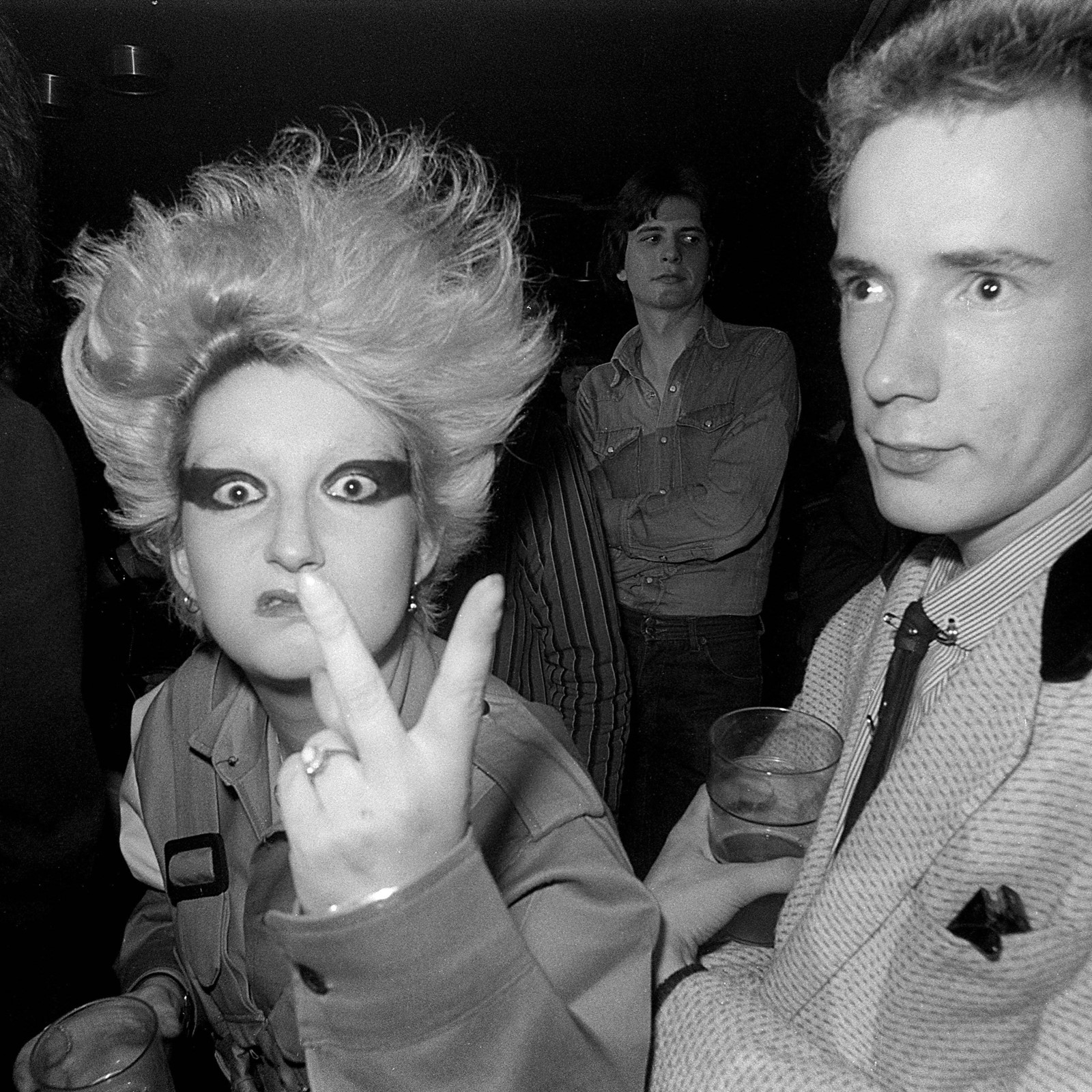This article was originally published on Another Man.
With her peroxide beehive, Cubist face paint and Kohl-eyed stare, Jordan Mooney provided punk with some of its most enduring – and provocative – images. Born Pamela Rooke in 1955 and raised in Seaford, Sussex, by ultra-conservative parents (her mum was a seamstress; her dad a WW2 commando), she moved to London in the mid-70s, where her fearless attitude and outré wardrobe secured her a job at Malcolm McClaren and Vivienne Westwood’s King’s Road boutique, Sex. Pivotal to the aesthetic of both the Sex Pistols and Adam and the Ants, and a muse to Derek Jarman – who cast her as Amyl Nitrate in cult movie Jubilee – her influence can now be seen everywhere from Lady Gaga’s wardrobe to Cara Delevingne’s eye make-up. With an autobiography due next year, she looks back on an iconoclastic life.
“I knew from a very early age that I wasn’t cut out for an ordinary life. Growing up my two style icons were Spock from Star Trek and Margot Fontyen. At secondary school I was always in trouble. I’d go up to London to shop at Big Biba in Kensington or for gigs – I saw David Bowie at the Rainbow – or I’d go over to Brighton then hitch home.
When I was 14 I went up to Smile in Knightsbridge to get my hair done by Keith Wainwright like Andy Mackay from Roxy Music. I had a big red mohican stripe down the middle and two pink stripes down the back. I got suspended from school for that but I really couldn’t understand what all the fuss was about. It was around the time that I changed my name. I didn’t want to be called Pamela Rooke any more. I’d read F. Scott Fitzgerald’s The Great Gatsby and there’s a very powerful androgynous female character in it called Jordan Baker so I became Jordan.
I was a free spirit, but looking back it can’t have been easy for my mum and dad. I was born very late in their lives – my mum was 41 when she had me – and they came from a different age. The world seemed very grey, and I was determined to brighten it up a bit.
As soon as I got to London things became easier – it felt like a clean slate. I’d read in Honey magazine about a shop on the King’s Road called Let It Rock which sold 50s gear. By the time I got there the name had changed to Sex. As soon as I walked in the door I loved everything about it.
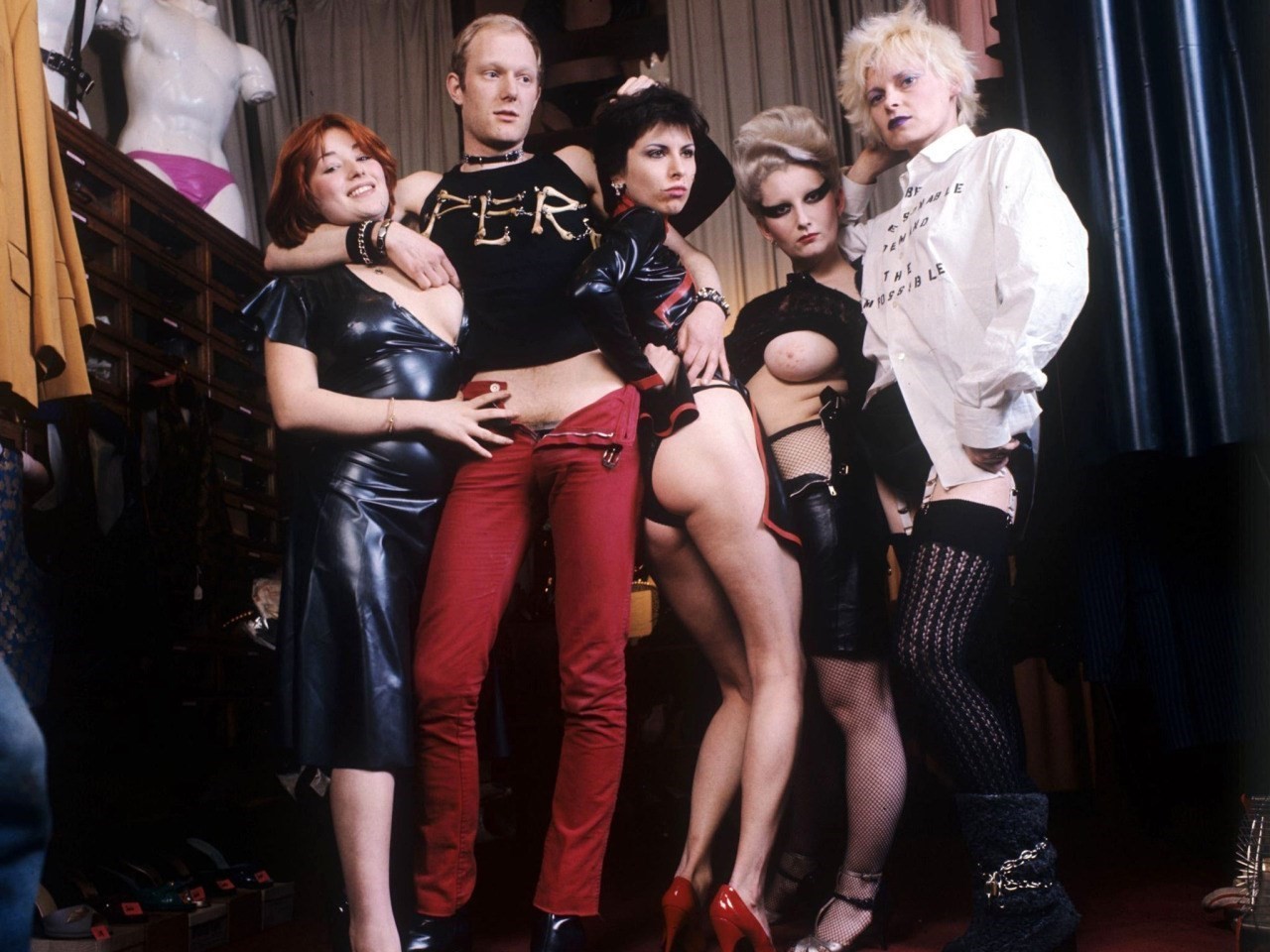
There was graffiti and chicken wire on the walls, the clothes were hung on gym bars and in the middle there was an old wrought iron bed hospital bed with a pink rubber sheet over it. I hit it off with (manager) Michael Collins immediately, and it didn’t take long before the four of us – me, Michael, Malcolm and Vivienne – became an unbreakable pact. Those two (Malcolm and Vivienne) were an amazing combination. She was so good at making things he was so good at ideas – it was the perfect storm.
Sex was a fantastic place to work. I’d get the bus or the train to work wearing a basque and a see-through petticoat with nothing underneath or some sheer knickers from Biba, all with stockings, suspenders and gold stilettos. I didn’t care what people thought. I’ve never felt the need to be accepted or endorsed by anyone else. I felt I was reclaiming sexuality. There’s a famous picture of me exposing my bosom in the shop. It’s the opposite of being a victim. It was about empowerment, not titillation. My whole persona was about that. It’s a show of dominance if you like.
I know I frightened the living daylights out of most of the people who walked into Sex. Boy George was a frequent visitor and he’s said I was pretty intimidating. Adam Ant told me he saw me as the living epitome of his idea of a dominatrix. Why was I like that? It’s hard to describe. I felt my expressions should be in tune with what I was wearing – like a work of art.
Did Malcolm and Vivienne take inspiration from me? Probably. I do know that my look was definitely spot on for what they were looking for. Sex wasn’t just a shop – it was part of a subversive school of thought which hit the mainstream when the Sex Pistols got noticed.
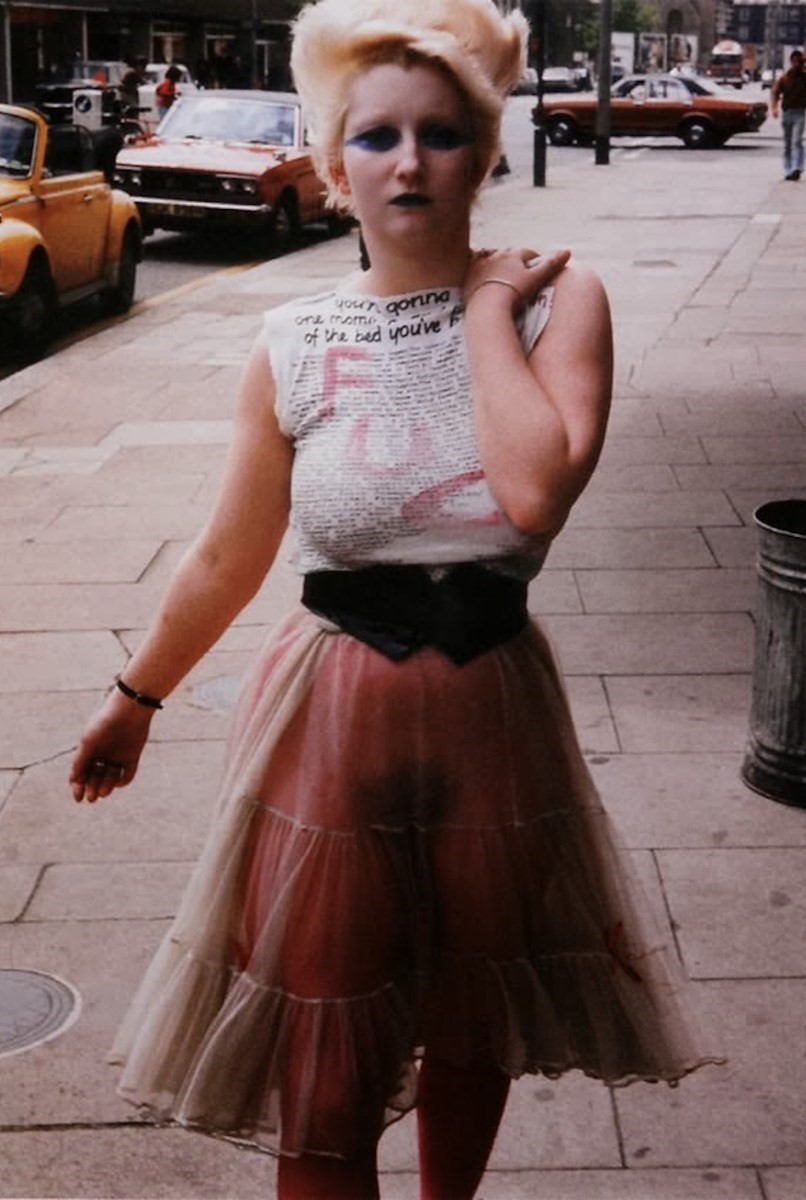
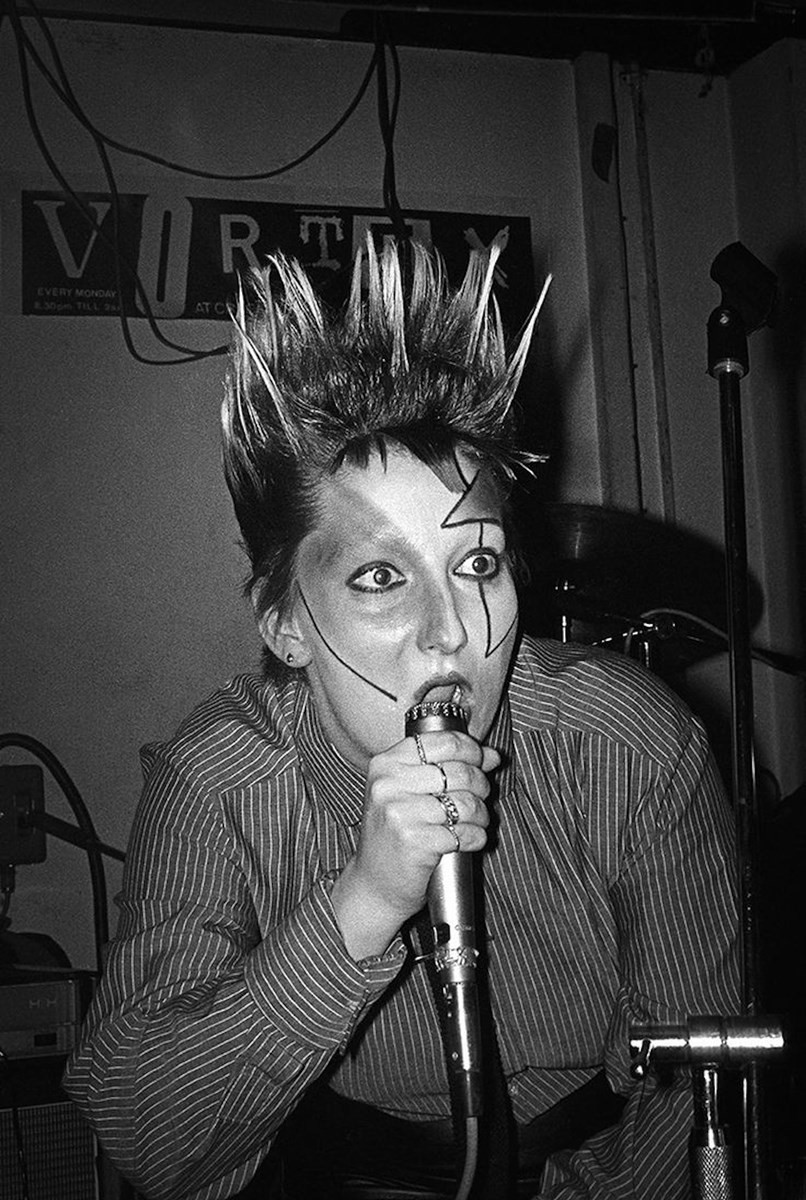
People say there’s no such thing as bad publicity, but the whole Bill Grundy thing set them up as a target in the eyes of Joe Public. At one point they were holed up in their flat out of fear, because if they set foot outside they’d be set upon.
Personally, all the publicity around punk meant that people wanted me to do things. I sang with Adam and the Ants and Derek Jarman asked me to be in Jubilee. It’s a difficult film to watch – you either love it or hate it. People talk about the violence but to me it’s about empowering women.
I wasn’t so keen on offers to style bands. I had no interest in that and I wouldn’t do it just for the money.
Later on, I loved being at Seditionaries when we were selling all the bondage gear and at World’s End when we were selling the pirate stuff. I managed Adam and The Ants during the whole Kings of the Wild Frontier period and I’ve got some great memories from that time – you can see me dancing in the video for Ant Music. I ended up marrying Kevin the bass player and managed his band Wide Boy Awake which soured things for a little while with Adam, but I’m still really good friends with him.
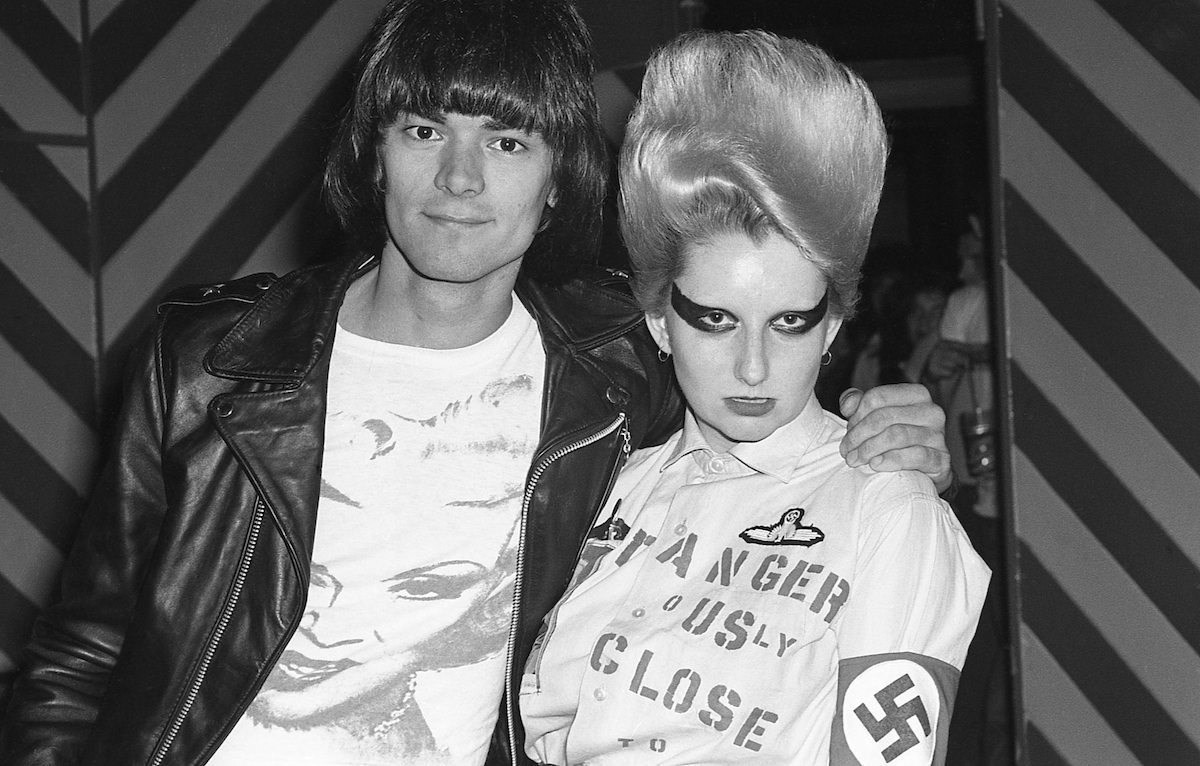
However, there’s only so long you can burn the candle at both ends and still get up and go to work each morning. I came back to Seaford in ’84 to look after my parents and I’ve been very quiet since then, but I kept some of the clothes – the ‘Venus’ T-shirt, the Anarchy shirt and a few other things.
In 2015 I took them all out of the back of the cupboard and they were covered in cobwebs and falling to bits. I felt very emotional about it, but I decided to put them up for auction. They went up for sale on my 60th birthday and I watched it live with a bottle of champagne and some friends. They made a lot of money and the best thing is that people get to see them – I saw Kate Moss modelling my leather pencil skirt and the ‘Venus’ T-shirt recently.
People seem to be interested in that period again. I’ve been doing a few talks lately and I’ve been surprised by the number of young people turning up – especially girls. It’s really great, because a lot of young people wear brands these days which is disappointing. They get influenced by a real lot of shit – I blame social media.
I suppose my biggest message if I’ve got one is that punk wasn’t born out of nostalgia. I don’t think anyone should try and recreate it. However, you should wear what you like – it’s about being comfortable in your own skin. People would say to me: ‘What the fuck do you think you look like? They didn’t realise that how I looked was what I was trying to tell them.”
Sixth image in gallery: Photography Simon Barker AKA ‘Six’ from the book PUNK’S DEAD; Courtesy of Laurence King Publishing.
